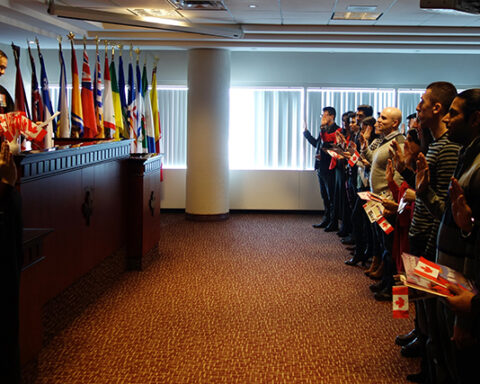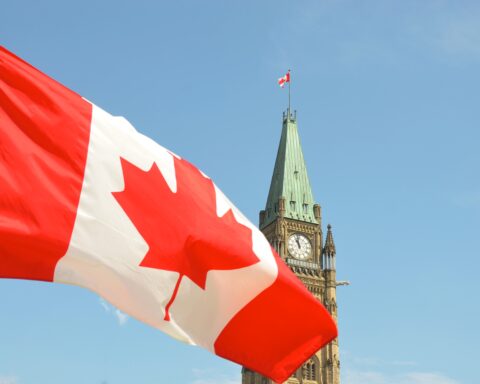New measures to strip citizenship from Canadians involved in terrorist activities will only apply to people convicted in a Canadian court and only if they are dual nationals with another country, Citizenship and Immigration Minister Chris Alexander said today.
The government had earlier signaled its intention to strip Canadians of their citizenship if they are involved in terrorist activities abroad, leading critics to say such a provision leaves Canadians vulnerable to false accusations from undemocratic regimes. But Mr. Alexander, speaking at a news conference in Halifax, said the new Strengthening Canadian Citizenship Act makes it clear that terrorism convictions would have to be from Canadian courts and the provisions would only apply to people who have dual citizenship. He added that the measure is intended “to be a deterrent to dual nationals who might think of going to fight for extremist groups” in Syria or elsewhere.
“The legal threshold is very high,” Alexander later told New Canadian Media. “It’s there in the Act, and it only applies to dual citizens.”
Bill C-24, which amends the Citizenship Act, was tabled in the House of Commons on Feb. 6. It refers to revoking citizenship from dual nationals “convicted of a terrorism offence as defined in section 2 of the Criminal Code — or an offence outside Canada that, if committed in Canada, would constitute a terrorism offence as defined in that section — and sentenced to at least five years of imprisonment,” as well as similar convictions under the National Defence Act.
It also notes that before revoking a person’s citizenship, the Minister has to notify the person in writing, giving them the grounds on which the decision is being made and the timeline the person has for making written arguments in his or her defence. The Act also gives the minister the right to call for a hearing into the case.
Mr. Alexander was speaking at the Pier 21, the Canadian Museum of Immigration, located in former immigration buildings in the port of Halifax. He has been on the road to Vancouver, Calgary and Winnipeg recently to talk about Bill C-24.
Lost Canadians
The minister’s Halifax appearance was intended to promote the aspects of the Bill related to the Lost Canadians, a group of people who were born in Canada but due to complicated regulations pre-1947 were denied the automatic right to citizenship because one of their parents wasn’t Canadian. The proposed amendments to the Citizenship Act grant citizenship retroactively to people born in Canada before 1947 and to the foreign-born children of Lost Canadians.
“I’m confident this Bill will help most Lost Canadians, though we know there may be some others who remain,” Mr. Alexander said. “We’ll look seriously at those, but we haven’t identified too many cases that aren’t dealt with” in the proposed amendments.
Bill C-24 also lengthens the amount of time a prospective citizen has to be resident in Canada, requires the provision of tax returns to prove residency and increases language requirements. Mr. Alexander says he hopes the bill will pass by the end of 2014.
The Immigration Minister was joined at the news conference by Peter MacKay, Minister of Justice and MP for Central Nova. Marie Chapman, CEO of Pier 21, thanked Mr. MacKay for his role in helping the museum attain crown corporation status in 2011. It is the second national museum to be located outside Ottawa (after the yet-to-open Canadian Human Rights Museum in Winnipeg).
More than one million Canadians began their new life by disembarking at Pier 21, and according to Citizenship and Immigration, one in five Canadians can trace their ancestors to the immigration gateway.




